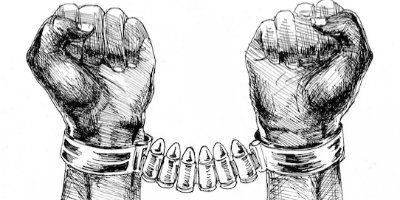19h 57min, mar 29, 1831 y - Nat Turner Rebellion
Description:
Nat Turner's Rebellion was a slave rebellion that took place in Southampton County, Virginia, in August 1831, led by Nat Turner. Rebel slaves killed from 55 to 65 people, at least 51 being white. The rebellion was put down within a few days, but Turner survived in hiding for more than two months afterwards. The rebellion was effectively suppressed at Belmont Plantation on the morning of August 23, 1831.There was widespread fear in the aftermath, and white militias organized in retaliation against the slaves. The state executed 56 slaves accused of being part of the rebellion, and many non-participant slaves were punished in the frenzy. Approximately 120 slaves and free blacks were murdered by militias and mobs in the area. State legislatures passed new laws prohibiting education of slaves and free black people, restricting rights of assembly and other civil liberties for free black people, and requiring white ministers to be present at all worship services.
Turner was intelligent and learned how to read and write at a young age. He grew up deeply religious and was often seen fasting, praying, or immersed in reading the stories of the Bible. He frequently had visions which he interpreted as messages from God, and these visions influenced his life.
He had his second vision in 1824 while working in the fields under his new owner Thomas Moore. In it, "the Saviour was about to lay down the yoke he had borne for the sins of men, and the great day of judgment was at hand".Turner often conducted Baptist services and preached the Bible to his fellow slaves, who dubbed him "the Prophet".
Turner originally planned to begin the rebellion on July 4, 1831, but he had fallen ill. An atmospheric disturbance on August 13 made the sun appear bluish-green; he took it as the final signal and began the rebellion a week later on August 21. He started with several trusted fellow slaves, and ultimately gathered more than 70 enslaved and free blacks, some of whom were on horseback. The rebels traveled from house to house, freeing slaves and killing all the white people whom they encountered.
Muskets and firearms were too difficult to collect and would gather unwanted attention, so the rebels used knives, hatchets, axes, and blunt instruments. Historian Stephen B. Oates states that Turner called on his group to "kill all the white people". A newspaper noted, "Turner declared that 'indiscriminate slaughter was not their intention after they attained a foothold, and was resorted to in the first instance to strike terror and alarm." The group spared a few homes "because Turner believed the poor white inhabitants 'thought no better of themselves than they did of negroes.'"
Added to timeline:
Date:
19h 57min, mar 29, 1831 y
Now
~ 194 years ago
